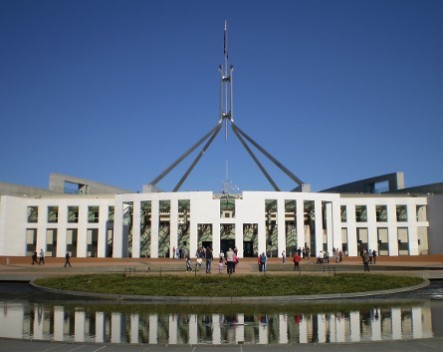
With the federal election just three weeks away and the economy a key issue in the campaign, Australia’s start-up sector is hoping its potential to contribute to economic growth will be recognised in party policies aimed at boosting start-ups.
A report by PricewaterhouseCoopers earlier this year, commissioned by Google Australia, says the Australian tech start-up sector has the potential to contribute $109 billion or 4% of GDP (gross domestic product) to the Australian economy and 540,000 jobs by 2033 “with a concerted effort from entrepreneurs, educators, the government and corporate Australia”.
Prime Minister Kevin Rudd says Australia needs to be a “smarter nation” to compete on the global stage.
“I want to see Australia make things the world needs, creating new jobs. We need to diversify our economy, build the new industries of the future and not have all our eggs in one basket,” he says in a campaign ad.
The opposition says it plans to deliver two million jobs more jobs over the next decade by building a “Five Pillar Economy” by diversifying the economy and building on its strengths
StartupSmart approached several figures in Australia’s start-up sector and asked them for their wishlist of what they’d like to see addressed by the parties to help entrepreneurs and found that reform to rules around employee share schemes and funding for start-ups to be key issues.
Employee share schemes
For John Dyson, investment principal at venture capital firm Starfish Ventures, reform of employee share schemes, which is currently being reviewed by the federal government, was the top item on his wishlist.
“It’s great the government is hearing the concerns from the innovation community that the taxation regimes around the employee share scheme has been a hurdle and a challenge for us to deal with,” he says.
“We want a taxation regime which is clear, transparent and easy to understand. The current regime is far from that.
“We want to be able to use the regime as a way to convince the best and brightest to start or work in innovative technology companies.”
Employee share schemes enable companies to offer employees a share of the company as part of a salary package, but concerns have been raised about when the benefit should be taxed and costs associated with implementing and managing a scheme.
Katherine Woodthorpe, chief executive of the Australian Private Equity and Venture Capital Association, agrees that reform of the scheme is necessary as it’s “critical for fundraising”.
“We’re very anxious, whoever gets in, that it gets through the parliament,” she says.
Woodthorpe says she believes the Coalition understands that improving employee share schemes was needed to attract people to start-up companies.
The Enterprise Network for Young Australians (ENYA) chief entrepreneur officer Jeremy Liddle also supports reform of employee share schemes.
Start-up funding and assistance programs
Greg Burnett, co-founder and director of Gold Coast incubator Silicon Lakes, says there needs to be more funding for start-ups at the very early stage of their development.
“It would go towards testing the validity of their product,” Burnett says. “Call it that `fail fast’ stage.”
He cited, as a good example, the Brisbane Lord Mayor’s Budding Entrepreneurs Program that offers $5000 grants for entrepreneurs to test their ideas.
Burnett adds there should also be more programs available for entrepreneurs to help develop their ideas.
“There’s still a gap in helping people work out how to take an idea and build a product,” he says.
Dyson agrees more government funding is needed to boost Australia’s innovation ecosystem and suggests more money be allocated to the Innovation Investment Fund, which co-invests with private sector investors to grow early stage companies.
“Politicians talk about the transition of the Australian economy … but at the end of the day that transition is about moving to smarter businesses, businesses that can really build upon intellectual property,” he says.
Tim Fung, founder and chief executive of task outsource website airtasker.com, says institutional funds, especially superannuation funds, should be encouraged to invest in start-ups.
“This would allow young technology companies to become more well-funded, which in turn would attract higher quality candidates to the industry and further improve the likelihood of building successful tech companies,” he says. “Right now Australian institutional funds would be more likely to invest into US venture capital funds, many of which Australian start-ups will raise capital from. This seems like a circular and unnecessarily drawn out process.”
ENYA also wants more funding, calling for the government to match investment into start-ups through government-approved incubator and accelerator programs. It also suggests governments guarantee loans to start-ups.
Education
Fung says there needs to be more done to educate computer engineers in Australia.
“Right now, there just aren’t enough people graduating from these degrees and of those that do, they are encouraged to either go back to their native country or for Australians, go and work overseas,” he says. “We need more quality candidates so that we can build cutting edge products and so that salaries (the bulk of start-up costs) don’t blow out.”


COMMENTS
SmartCompany is committed to hosting lively discussions. Help us keep the conversation useful, interesting and welcoming. We aim to publish comments quickly in the interest of promoting robust conversation, but we’re a small team and we deploy filters to protect against legal risk. Occasionally your comment may be held up while it is being reviewed, but we’re working as fast as we can to keep the conversation rolling.
The SmartCompany comment section is members-only content. Please subscribe to leave a comment.
The SmartCompany comment section is members-only content. Please login to leave a comment.